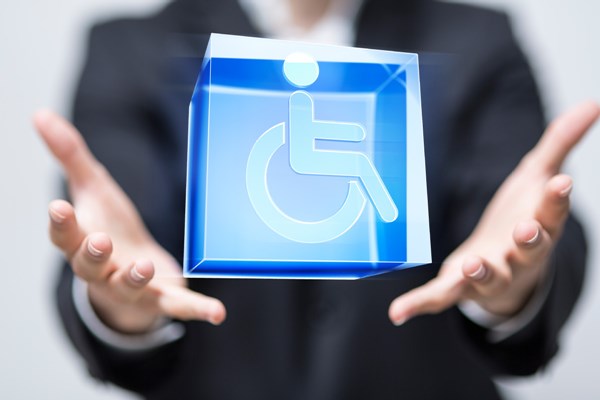Courts boost legal services for disabled

[Photo/IC]
Measures taken include better access and more efficient handling of cases
Chinese courts have been told to better protect the rights of people with disabilities and meet their legal demands by accelerating the handling of their cases and providing more convenient litigation-related services.
The requirements were issued by the Supreme People's Court on Thursday, a day ahead of the International Day of People with Disabilities, as it outlined to the China Disabled Persons' Federation the way courts nationwide have solved disputes involving disabled litigants.
He Shu, deputy chief judge of the top court's No 1 Civil Division, lauded various measures taken by courts across the country to serve disabled people in litigation in recent years. "But we need to do more in giving them easier access to legal services and helping them integrate into society by rule of law," he said.
He said the top court has issued a number of guidelines to provide litigation-related convenience and legal aid for disabled litigants, while many courts have also improved the efficiency of case handling involving the disabled by opening quick channels for case filing and establishing barrier-free courtrooms.
"Our aim is to ensure disabled people's rights can be fully guaranteed in the whole process of litigation, and what we want is to solve disputes involving the disabled in a more humanized manner," he added.
Zhou Jian, director of the federation's rights protection department, said some disabled people were still afraid to or had difficulties going to courts to protect themselves when their legitimate rights were ignored or infringed upon. He said there was a need to offer the disabled more assistance in litigation.
In one example, a mentally disabled woman surnamed Lu from Putian, Fujian province, was found to have been assaulted regularly by her husband, surnamed Wang, after they married.
When Lu tried to apply for a personal protection order, similar to a restraining order in the West, she suffered frequent threats from Wang, which made her afraid to continue the application.
After learning of the situation, the court allowed the district's disabled persons' federation to apply for the protection order on her behalf. The order said Wang must keep his distance from Lu and her workplace.
It was the first time that a disabled persons' federation had helped someone apply for a protection order.
Wang Dan, a judge from the top court, said, "The case not only provided a new way for solving domestic violence cases involving the disabled, but also reflected the significance of the joint effort in meeting the legal demands of such groups of people."
Chen Zhiyuan, deputy head of the top court's research office, said it will focus more on new judicial problems involving the disabled, urging courts nationwide to speed up the trial of related cases and provide high-quality services for litigants with disabilities.







